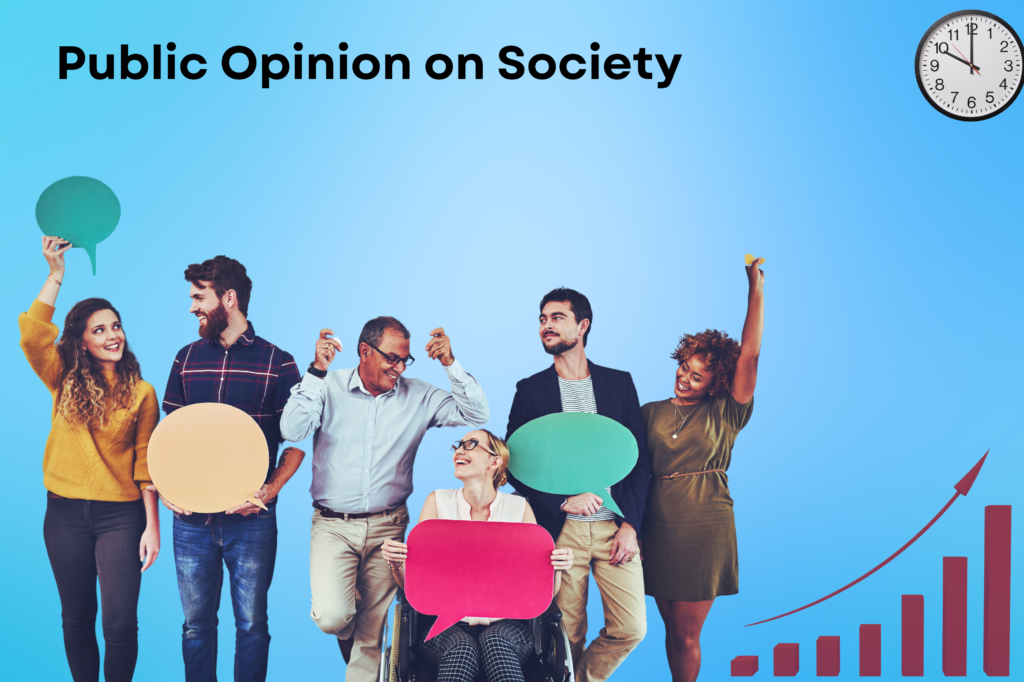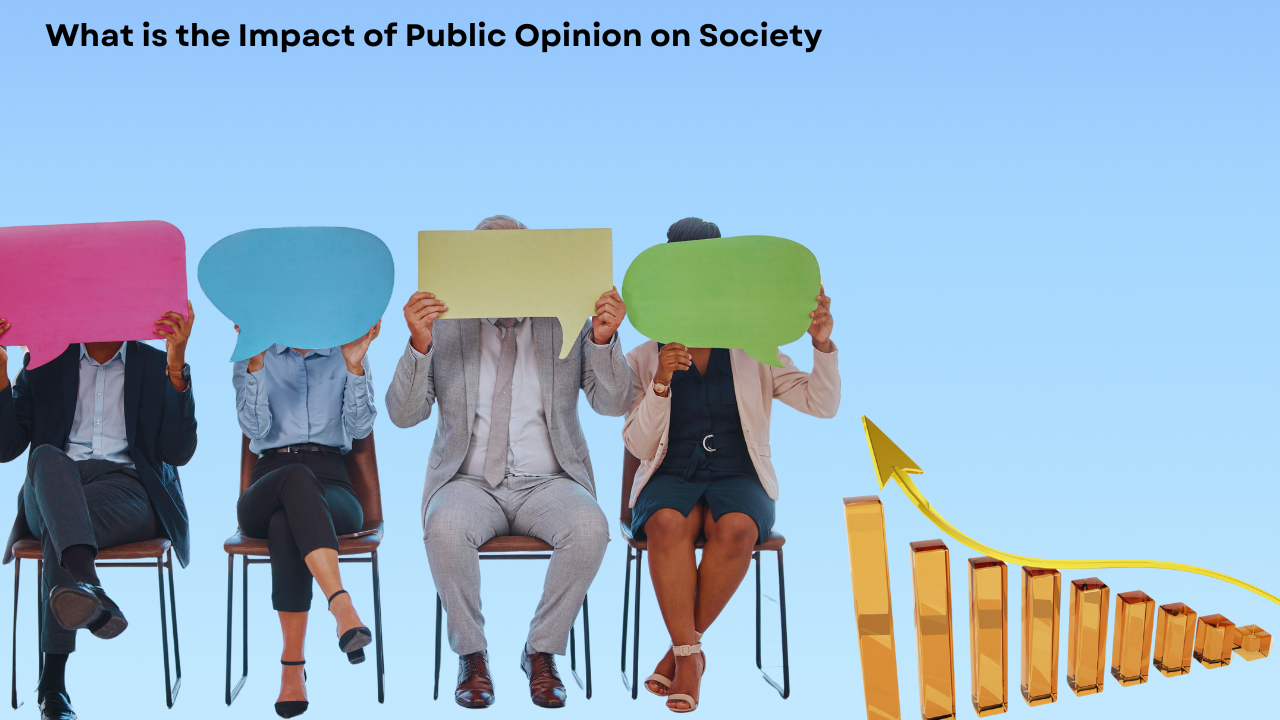Sociology examines how people interact with each other, how they act, and how societies work. On the other hand, public opinion is what everyone in a society thinks and feels about different topics. Sociology helps us understand how public opinion shapes, changes, and affects countries, so the link between sociology and public opinion is essential. This article will detail how sociology and public opinion are connected.

What is sociology?
Definition and Importance
Sociology is the study of how people interact with each other. It looks at how people connect, cultural norms, and societal changes. Sociologists study how social organizations like family, school, and the government affect people and groups. This information helps us determine where social problems come from and how to fix them so society is better.
The Role of Sociology in Understanding Society
Sociology examines how people behave in groups and tries to determine why they do what they do. It explores how groups work, how society changes, and how social forces affect people’s choices. By looking at things through this lens, sociologists can see how society will change and suggest measures to improve communities.
Public Opinion: A Collective Voice
What is Public Opinion?
Public opinion is what most people think, feel, and believe about matters that matter to them. Many factors, including the media, personal experiences, and cultural influences form it. What the public thinks can affect policies, elections, and social groups.
The Formation of Public Opinion
The media, social connections, schooling, and government leaders are just a few things that can change people’s minds. What people think often comes from what they read, what they must believe, and what others say.
How Sociology Explains Public Opinion
The Social Influence on Public Opinion
Sociology says that people don’t just decide what they think. Peer groups, social institutions, and the media are all social forces that constantly affect people. Sociologists study how these things affect how people believe as a group. For instance, how the press describes political events can change people’s feelings about government policies.
Group Dynamics and Opinion Formation
What happens when people in the same social group all agree on something? It is called “groupthink.” Sociological research shows that people are more likely to agree with people they talk to often, like family, friends, or coworkers. It helps to explain why people from different social groups can have very different views on climate change and healthcare reform.
The Role of Mass Media in Shaping Public Opinion
Media’s Influence on Public Perception
What people see and read on TV, in the newspaper, and on social media dramatically affects their thoughts and feelings. It also changes how they see the world. In sociology, people see how problems are shown in the media and how people deal with them. The way the press talks about crime rates, even if they are going down, can scare people.
The Impact of Social Media
Social media sites like Facebook, Twitter, and Instagram significantly impact people’s thoughts and feelings. They give people a quick way to share their thoughts and interact with others. Sociologists study how social media systems filter information, making users more likely to believe what they already think and creating “echo chambers” where people see the same views repeatedly.
Public Opinion and Political Sociology
When politics and public opinion come together
Public opinion is critical in politics. Before making choices or implementing policies, politicians and policymakers often find out what the public thinks. In democracies, public opinion significantly impacts elections as politicians build their platforms around voters’ worries.
Political Movements and Public Opinion
Public opinion can speed up political movements. In the United States, for example, the civil rights movement grew more assertive as people became more in favour of race equality. Similarly, new groups like Black Lives Matter and activism against climate change show how changes in public opinion can cause political and social changes.
The Role of Public Opinion in Social Change
Public Opinion as a Catalyst for Social Change
The will of the people is a strong force that can bring about social change. When a large group has strong opinions about a social problem, specific laws and rules can be changed. One example is that same-sex marriage became legal in the U.S. in 2015 because more and more people supported it.
What can sociology do to help us understand social movements?
Sociologists examine how shifts in public opinion can cause social movements. They also examine what makes these groups successful, such as the role of leadership, organization, and media coverage. This analysis helps us guess what will happen in future attempts to change society.
Sociological Theories and Public Opinion
Functionalism and Public Opinion
Functionalism sees society as a multifaceted machine whose parts work together to stabilize things. The idea behind this is that public opinion helps keep things in order. Functionalists say that public opinion shows what society thinks and feels and helps shape social norms and ideals.
Conflict Theory and Public Opinion
On the other hand, conflict theory looks at how different social groups fight with each other. This way of thinking says that public opinion is often shaped by the needs of solid groups that want to keep their resources and power. Sociologists who use conflict theory might look into how corporate media changes public opinion in ways that help the rich and powerful.
Symbolic Interactionism and Public Opinion
Symbolic interactionism looks at how people’s relations with each other shape society. From this point of view, everyday interactions, symbols, and language shape public thought. Sociologists study how people share their thoughts and how those conversations affect people’s beliefs.
The Impact of Public Opinion on Public Policy
Public Opinion and Policy Making
Popular opinion typically significantly impacts government policies. Polls of the public’s opinion help elected leaders make decisions, especially when elections are approaching. When most people agree with a politician, that politician is more likely to create policies supporting that view.
Case Study: Public Opinion and Health Care Reform
For example, U.S. healthcare reform shows how the people’s will can change the law. People have changed their minds in the last few years and want to make it easy for more people to get health care. Because of this, laws have been changed, such as the passage of the Affordable Care Act. Sociology researchers look at how changes in public opinion affect laws and how politics and the media affect public opinion.
The Measurement of Public Opinion
Opinion Polls and Surveys
Opinion polls and surveys are common ways to determine what the public thinks. With these tools, researchers can discover how a group of people feels about different problems. Sociologists examine how these polls are done to ensure accurate and reliable results.
Challenges in Measuring Public Opinion
An opinion poll can be helpful, but it can be challenging to use. Sociologists say that the results can be skewed by biases in how the poll is set up, how the questions are worded, and how the samples are chosen. Also, because of social desirability bias, people might not always tell the truth in polls.
Conclusion
Opinion and society are closely connected. Sociology helps us comprehend how public opinion forms and changes society. By looking at social forces, media effects, and political movements, sociologists try to figure out how strong group views can be. Public opinion shapes laws and drives social change in both business and politics. Understanding and changing social trends requires knowing how sociology and public opinion work together.
